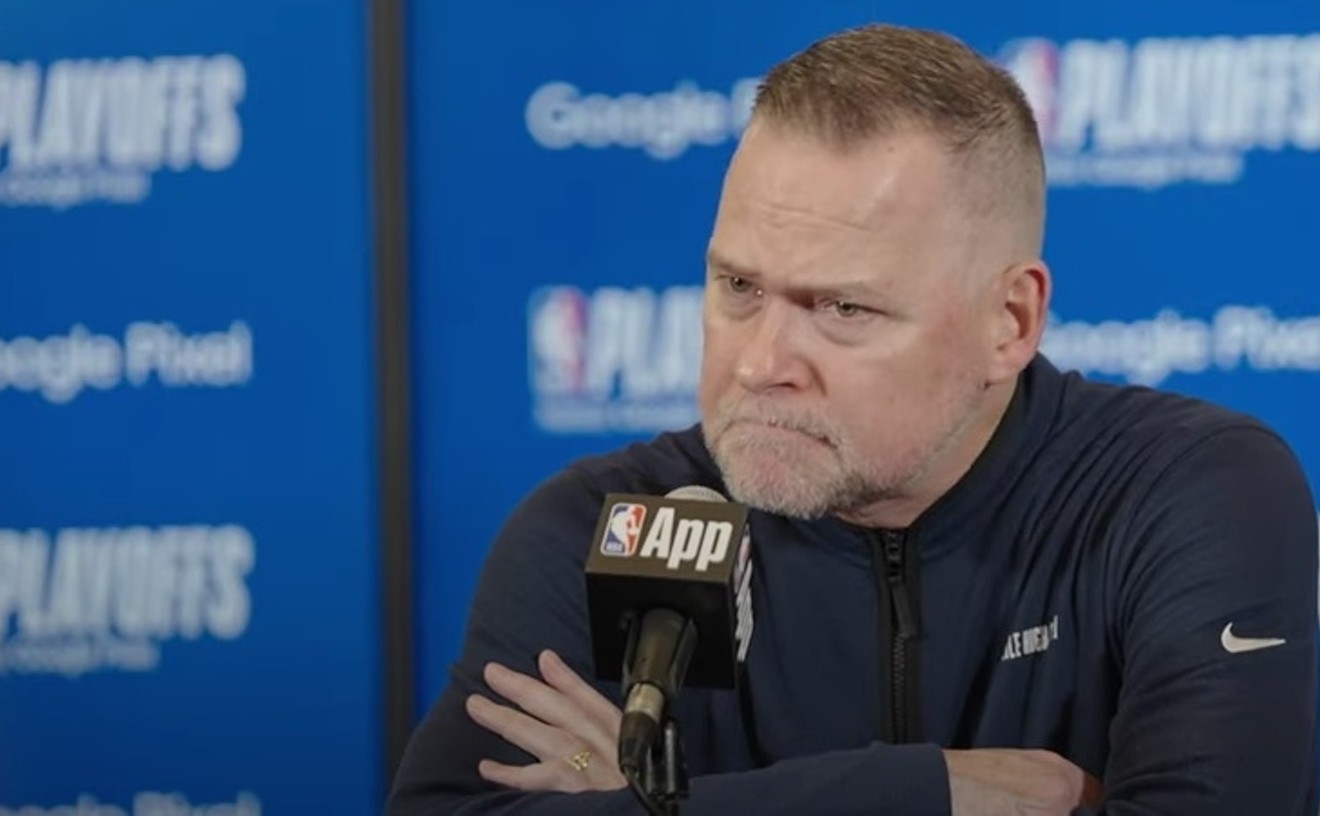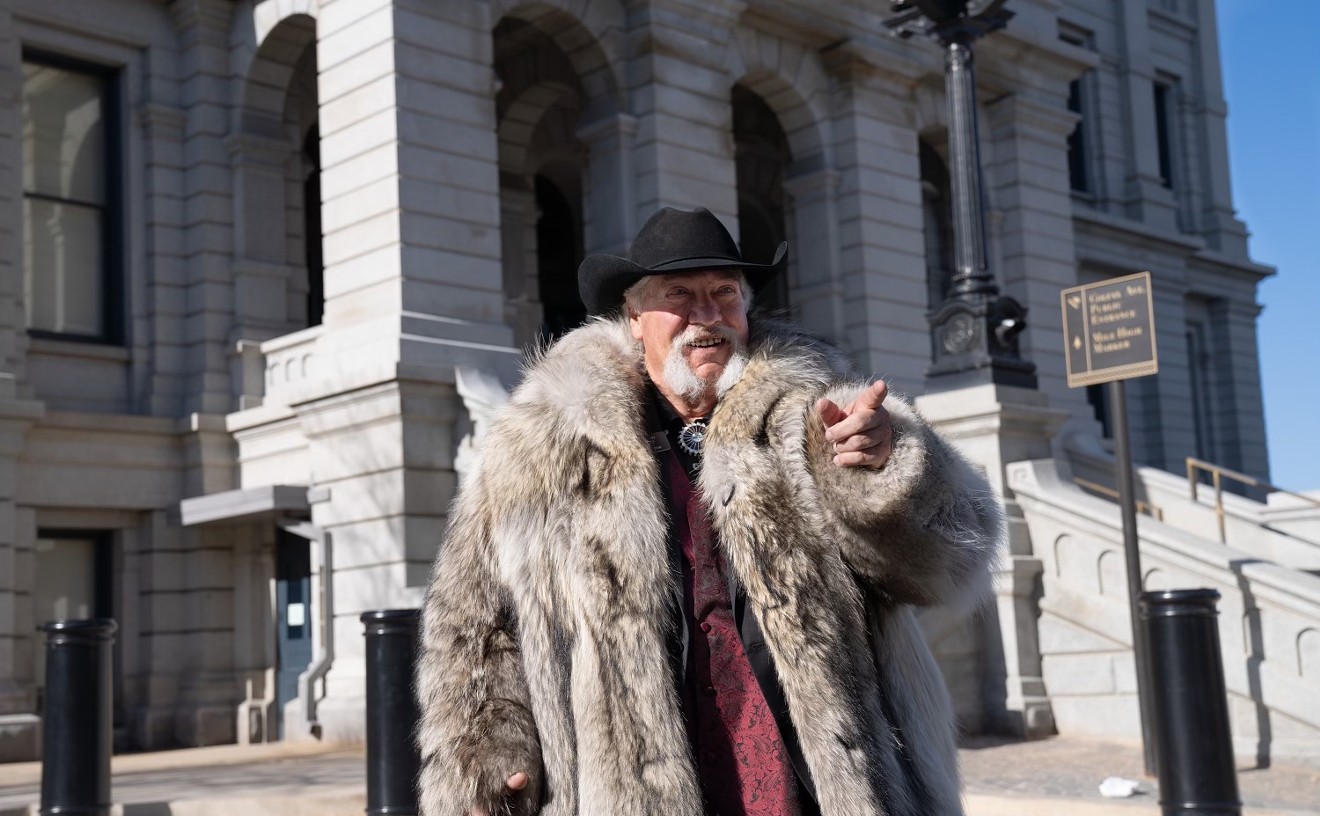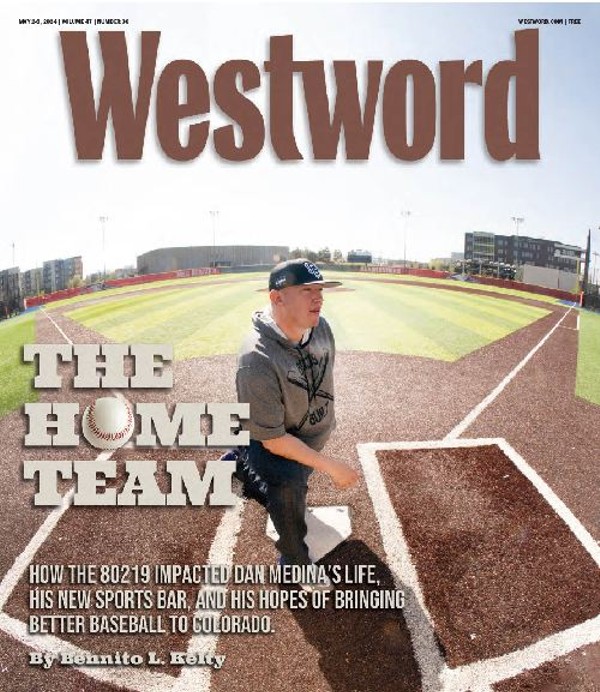The disputed parcel stirs passions because it's slated to wind up in the hands of developer Leo Bradley, whose company, Bear Creek Development, already owns a serious chunk of South Table Mountain. In the past, Bear Creek and Coors, another major landowner in the area (combined, the firms control approximately 1,400 acres), have backed a couple of proposed projects -- a quarry and a corporate headquarters for Nike -- that were shot down in part because of vigorous opposition from Save the Mesas, a collective of local residents who want to keep this part of the mountain development-free. Don Parker, president of Save the Mesas, concedes that Bradley's latest acquisition is small relative to his other holdings, but he sees it as making a bad situation worse. "We believed that this eighty acres was safe," he says, "and now it turns out that apparently it's not."
Ralph Schell, Jefferson County's open-space director, confesses to similar confusion. The land, purchased by Denver in 1938 for use as a gravel quarry, was long assumed to be under the umbrella of the city's parks department, meaning that it could only be sold after a vote of the people. A couple of years ago, when Jeffco was looking at expanding its trail system into this plot, Schell found out differently; he says it was actually considered to be "excess or surplus land" that existed in a sort of governmental limbo. Nonetheless, he insists Denver officials told him "that we didn't need to worry about that, and that they would work with us on the trails. So we took the land off our property-acquisition list."
Jeffco had every opportunity to put it back on the list, Bradley points out. "Denver went to the Jefferson County open-space people in an effort to get them to joint-venture this Red Rocks acquisition before they ever came to me," he says, "and Jefferson County turned them down."
Several months ago, Schell confirms, Denver representatives asked Jefferson County to join them in applying for grants to fund the purchase of land near Red Rocks. But Jeffco declined because "at the time, we had a couple of other projects we were going forward with, so we would have been competing against ourselves by applying for more grants -- and I couldn't shift those priorities." More recently, Schell says he was embroiled in discussions with Ned Burke, the property manager in Denver's asset-management office, concerning a variety of tracts in Jefferson County owned by Denver.
But before things could progress beyond the discussion stage, Save the Mesas learned that Denver was considering a land exchange with Bradley -- 120 acres Bradley owned near Red Rocks for the eighty on South Table Mountain. The group responded by writing a letter to Webb and alerting the media to this possibility. That same day, Schell says, Burke told him that he'd get back to him about future negotiations -- "and I haven't heard from him since."
Schell admits to being "frustrated" by the latest transaction, but he's hopeful that his county and Denver can restart talks about other Denver-owned property in Jeffco, including land near Conifer and Clear Creek Canyon. Save the Mesas' Parker also wants Jefferson County to continue its attempts to obtain all the Bear Creek/Coors acreage on South Table Mountain (negotiations have been stalled because of disagreements over price). He even thinks it's possible for the two entities to work out a deal for the eighty acres before it reaches Denver City Council, which must approve the swap, thereby preventing it from winding up in Bradley's portfolio at all.
For his part, Bradley is remaining mum about what he intends to do with the land. But he doesn't mind complaining about how he's been vilified by folks near South Table Mountain. "My wife's family originally sold the land for Red Rocks fifty or sixty years ago, and I don't think there's a family anywhere around here that's cooperated more with the open-space people than we have," he says.
"We understand and sympathize with how the people at Save the Mesas feel," says Greg Campbell, a member of Friends of Red Rocks. "But we are totally enthusiastic about the implications this has for protecting the park, and we're astounded at the speed with which the city was able to move." The Friends anticipate more land deals in the future, and are even staging fundraisers to assist in these efforts; a "Rock the Rocks" show to co-star local acts Opie Gone Bad and Yo, Flaco! is slated for June 15 at Herman's Hideaway.
As for Schell and Save the Mesas, Andrew Hudson, Mayor Webb's spokesman, wants them to know that Denver's deal with Bradley was nothing personal. "We're just trying to prevent Red Rocks from being a victim of the type of sprawl that has come to define the metro area to a large degree," he says. "We're simply trying to do what is the most responsible thing for the city of Denver, and that is to preserve the land surrounding the park from future development. We weren't trying to be bad neighbors."











